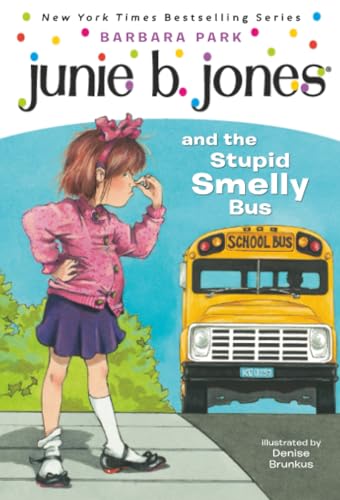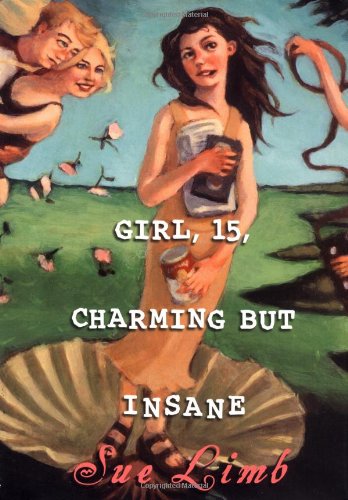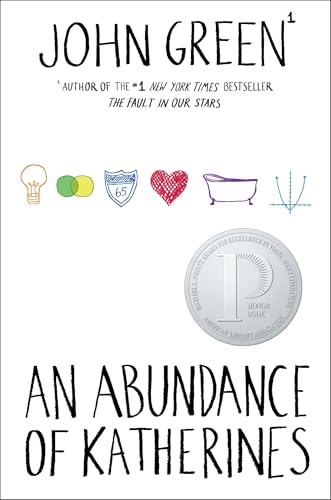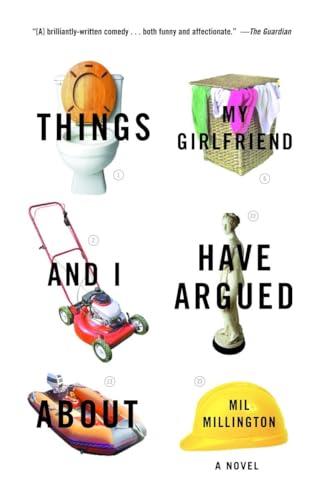I’m not usually a process person. I like a well-crafted book as much as the next book lover, but I don’t tend to dig into the details of the author’s work. But sometimes, I’m hit with a sense of wanting to know more. Shark Girl was one of those books where I wanted to know the how and why of it. Fortunately, there was a forum with the author on readergirlz. Unfortunately, I was unable to log in to ask my own questions. So I’ve asked Kelly Bingham some of my questions, and she answered them most honestly and graciously.
In the readergirlz forum, you mentioned that the attack on the Hawaiian surfer took place just as you finished your manuscript. What was that like for you and how did it affect your route to publication?
It was quite a shock. I couldn’t believe something had happened that I’d been writing about... something that seemed so freaky and random and “this would probably never happen in real life.”
I couldn’t see trying to sell my book so soon after Bethany Hamilton’s real-life loss and tragedy. So I put the book away. I wasn’t sure I’d ever do anything with it. A year later my teachers and writer friends urged me to get it out and send it off. I got it out, but felt it needed work. I spent a year revising it then mailed it off.
Even now I get people saying, “Oh, is that about that surfer girl? I read her book already.”
I want people to know this is fiction and not in any way an attempt to guess at what Bethany went through, and that it was written before her attack, and that the two stories are entirely unrelated. It’s one thing to make up a story like this, it’s another to actually live it, and I wouldn’t want to be disrespectful to Bethany.
You mentioned that you changed your style of writing for Shark Girl. What did you do differently and how did it change the book?
I began writing the story in prose, but found it difficult to get going. I couldn’t hear my character’s voice, and I felt too disconnected from her to really get rolling on the writing. My friend suggested I try writing it in poetry form and that was the answer!! Once I switched to poetry, the story came pouring out. Consequently, I feel I was better able to put more emotion into it than I would have if I’d continued plodding and poking, as I’d been doing.
I was impressed by the reactions of the people around Jane. You really presented a mini-universe of the many different ways that people respond when confronted with a terrible situation — and in showing that, gave readers a better understanding in a broader sense. Basically, that people are trying to help, even if it doesn’t always come out right. Can you tell us a little more about how you were able to relate to and capture that aspect of humanity for the book?
I think we’ve all been in situations where you want to help someone but don’t know what to say. So you say what comes from the heart... or maybe what you think you “should” say in some cases, and it seems to do no good, which is frustrating. Or you may inadvertently provoke a feeling of rejection from the person you are reaching out to. It’s a hard feeling to want to help and to mean well but feel that your help has done no good at all. I think that’s when we have to recognize not everything is about “us,” that sometimes, we can only give our heartfelt best, and then let it go. A person who is grieving should be allowed to grieve without having to make us feel better... and that may mean they aren’t receptive or quick to assure us that they appreciate what we’re trying to do. A time like that is really all about just being there for someone.
I learned this over time, and through personal loss of my own. Many years ago, I was expecting a baby, and I lost it. Many people reached out to help me with cards or phone calls. I have to admit, I was shocked at what some people said in an attempt to make me feel better. I heard reasons why I shouldn’t feel sad, why it was meant to be, how it wasn’t that big a deal since it was early, it happens to people all the time, and some pointed out that another baby would come along so not to worry.
They all meant well, of course. But those remarks only made me feel worse. The most meaningful, helpful words came from women who simply said, “I am sorry for your loss.” Or, “I am sorry for what you are going through, I know it must hurt.”
Afterwards, I did reflect on that quite a bit, and I guess it made its way to my book somewhat. People care, and they want to help. You have to to understand that if they say the wrong thing, it’s because in their mind, it’s not wrong. It’s helpful. They are sincerely trying to help.
Jane’s friends, and the public, they all want to help. But sometimes they address her situation from their own agenda, which is not necesarrily hers, or from their own point of view, which again, is not necessarily the same place in life that she is in.
I’ve thought about how everyone responds to tragedy in different ways. Some want to minimize it for you, others want to distance themselves, others want grim details... they seem drawn to it. Others want to just simply help if they can. In Jane’s case, one friend seemed to want to just change her enitrely and start over. But that was a misconception on Jane’s part... her friend wanted to help any way she could, and that was her way of doing so.
When did you start writing?
I always liked to write from a young age... I was a big creative writer all through elementary school and junior high and so on. I liked to make up stories and draw pictures, sometimes, to go with them. As an adult, I joined Society of Children’s Book Writers and Illustrators (SCBWI), went to conferences and workshops to learn more, and formed a writers’ group in my neighborhood. We’d critique each other’s work and inspire each other; it was lots of fun.
Where do you do your best thinking?
Usually when I am alone, like walking, grocery shopping, working out at the gym, taking a shower, things like that. Ideas tend to pop up when I’m doing something completely unrelated to writing. I’m grateful because I don’t do well when I sit down and try to solve a story problem on the spot. It’s like my brain works on it quietly without my knowledge and then after several days, boom, here comes the answer when (and where) I least expect it.
Who inspires you personally or professionally?
Good literature! I love a good book. And I guess I’m getting picky as I get older because it seems to me to be so much harder now to find books that I “just can’t put down,” whereas when I was younger, almost any book was fascinating.
Good stories inspire me, as do good films and poetic song lyrics and great music. And people, of course. There are so many inspirational people out there, if you just keep your eyes open you will run across many unsung heroes each day, or people behaving in ways you want to write about.
Why did you feel the need to write this book?
I don’t know. Once the idea came to me, it just seemed so compelling. I wanted to write about loss and suffering and coming out the other side in one piece. And once I started writing it in poetry form, I just wanted to keep going, I found it so enjoyable.
How does Shark Girl reflect your own life experiences?
I think we all know what it feels like to lose something, and to search for ourselves after such a loss. Finding out what we are made of, or redefining ourselves, seems to be a lifelong process. As far as Jane being an artist, that is something that naturally, I can relate to. I was a professional artist for many years before I decided to pursue writing full time.
A personalized, signed copy of Shark Girl will be part of the prize package for the 48 Hour Book Challenge, because I must get at least one more copy of this book out into the hands of a reader.
Kelly, thanks for coming by MotherReader and for your candid, honest answers. I’ll be looking forward to your next book.
The Rundown
One of the bestselling preschool books of recent times was Walter the Farting Dog. At the same time, the American Library Association named as one of its best books Michael Rosen’s Sad Book, a book in which Mr. Rosen talks about his despair over the death of his son. I believe that, for most of us, what we want lies somewhere between a flatulent canine and overwhelming grief.
View my complete profile
Email MotherReader

Email MotherReader

Share It
Blog Archive
-
▼
2008
(250)
-
▼
May
(25)
- Poetry Friday: Red Butterfly
- “All Roads Lead Away”
- The Thursday Three XII
- Fusion Stories
- Our Movie ROCKS!
- Poetry Friday: Dirt on My Shirt
- The Thursday Three XI
- Kelly Bingham Interview: Shark Girl
- Interview Alerts
- Comment, Connect, Create: How’s That Working Out f...
- Poetry Friday: My Dog May Be a Genius
- The Thursday Three X
- Brief Interruption
- Meme of Fives
- Grab Some Popcorn
- 2:00 a.m.
- Oh, No
- The Thursday Three IX
- The Willoughbys
- Brunkus and Bush
- “All Roads Lead Away”
- One Short Film, Two Days
- Poetry Friday: Search Poetry
- Reading Is Fundamental Update
- The Thursday Three VIII: Bear Edition
-
▼
May
(25)
Followers
MotherReader Suggests
Funny Books for All Ages
Newborn
One Year
Two Years
Three Years
Four Years
Five Years
Six Years
Seven Years
Eight Years
Nine Years
Ten Years
Eleven Years
Twelve Years
Thirteen Years
Fourteen Years
Fifteen Years
Sixteen Years
Seventeen Years
Eighteen Years
Adult
Newborn

One Year
Two Years

Three Years
Four Years
Five Years

Six Years
Seven Years
Eight Years

Nine Years
Ten Years

Eleven Years
Twelve Years
Thirteen Years

Fourteen Years
- Born Too Short
- Sex Kittens and Horn Dawgs Fall in Love
- Once Upon a Marigold
- Angus, Thongs, and Full Frontal Snogging
Fifteen Years

Sixteen Years
Seventeen Years

Eighteen Years
- Our Dumb Century: The Onion Presents 100 Years of Headlines from America’s Finest News Source
- How to Ruin Your Life
- The Daily Show with Jon Stewart Presents America (The Book): A Citizen’s Guide to Democracy Inaction
Adult

- I’m with Stupid: One Man. One Woman. 10,000 Years of Misunderstanding Between the Sexes Cleared Right Up
- The Sex Lives of Cannibals: Adrift in the Equatorial Pacific
- Things My Girlfriend and I Have Argued About: A Novel
- Why Not Me?
- Good in Bed
- I Love Everybody (and Other Atrocious Lies): True Tales of a Loudmouth Girl
- Bitter is the New Black: Confessions of a Condescending, Egomaniacal, Self-Centered Smartass, Or, Why You Should Never Carry A Prada Bag to the Unemployment Office
Copyright © 2006–2015 MotherReader All rights reserved.
Blogger Template by Anshul Dudeja | WP Theme by Templatelite
Blogger Template by Anshul Dudeja | WP Theme by Templatelite














8 comments:
Wow, candid is right. I would be LIVID if people said to me some of what they said to her, yet she used it to solidify her writing. WOW. Thanks for the asking the right questions.
This was a wonderful interview! Thanks to you both.
When I read the book, I was astonished by how very right she got people's reactions. It was a gift to turn that awful part of her life into a book that challenges us to look at how we handle tragedy. And a gift to share the insight with us.
Fantastic interview! I love SHARK GIRL, and I'm pleased to see/read that you do too.
Some people say all the wrong things when others are residing in a state of grief or shock. Some say the right things. Words hurt, words heal, but bottom line, words leave an impression. So does intent. I'd rather a person with good intentions not know what to say than a person with cruel intentions say something vindictive, but there are always those instances in which people say the wrong thing without really meaning to do so.
I'd love to see you chatting away on the readergirlz forum. If you still can't log in and you ever have questions you want to ask other readers or authors, please feel free to email them to me, and I'll post them for you. Shannon Hale's chat is tomorrow! :)
Adding it to my TBR pile...
Jules, 7-Imp
Great interview...I'm reading SHARK GIRL right now (about 2/3 of the way through) and am loving it. She does the the novel in verse form beautifully!
Thanks, both of you, for the interview.
Great interview, MotherReader!
Let me know if you want to participate at the rgz group forum! You'd be a wonderful addition. :~)
Lorie Ann Grover ~readergirlz diva/author
Great interview! I agree, come join the readergirlz discussions!
Post a Comment